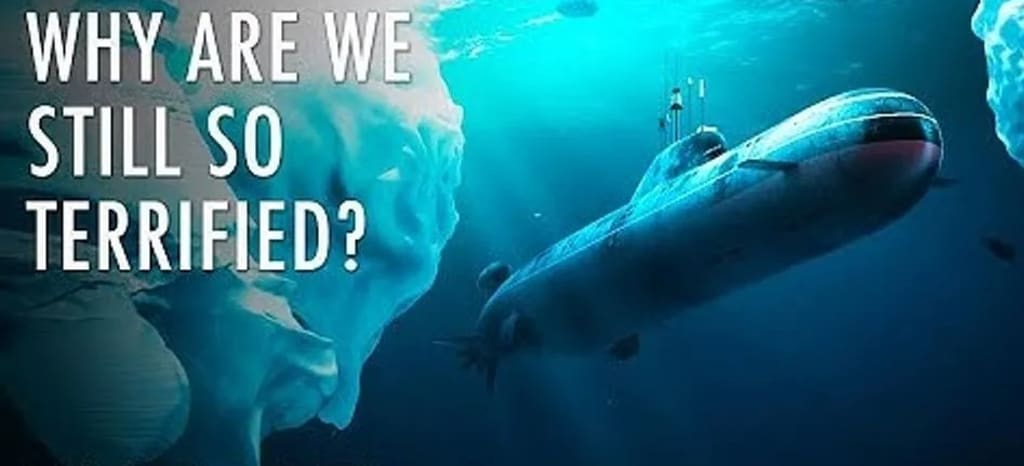What About the Real Motive Behind Our Lack of Ocean Exploration?
Ocean Exploration

Ever wonder why, despite our scientific and technological progress, there is so much of our world that we still know so little about? Over 80% of our seas are still unexplored. Why is this enormous body of water that covers most of our Planet also one of the most vulnerable and misunderstood areas in the universe? Pressure has a lot to do with it. Did you know that only about seven per cent of the world's oceans have a special tag called marine conservation areas or maps? We have this enormous aquatic playground in our backyard, but we've barely scratched the surface. Our deep ocean is a terrifying region with zero vision, subfreezing temperatures, and pressure so high that, in some places, you'd think you weighed fifty pounds. jumbo It makes sense that sending humans into space is easier than sending them to the ocean's bottom if you have jets on your body. the deeper you go into the waters the more stress piles up but let's not forget we have Tech on our side right researchers now use these cool satellite technologies that monitor the color of the ocean to examine how much phytoplankton is there for instance why is this important you might ask since these little plant-like Critters are genuinely pretty major players in our big blue oceans in the grand system of things in the Aquatic World phytoplankton is such as the Bedrock of the ocean food chain it provides Life to almost everything from the tiny zooplankton that are animal-like microorganisms to those colossal amazing whales when these Technologies first came within satellites could get clear images of the ocean faster compared to a ship could take the same number of measurements in 10 years but it's not all regarding looking at the ocean from space at times you gotta dive in there and see it for yourself gratefully we've come a long way in Ocean investigation Tech too we've got things like floats and Drifters that ride the ocean winds while collecting data and a whole Fleet of underwater Vehicles a few of which are manned some remote controlled and some even autonomous recall James Cameron the guy who made the movie Titanic he's super into examining the ocean and in 2012 he established a record by going down to the Mariana Trench in a vertical torpedo sub he believes there's nothing like being in the ocean and experiencing it firsthand Other companies use a variety of technologies for their ocean explorations, which has allowed them to find amazing things like the only deep sea coral reef in the Mediterranean Sea near Morocco. They have also discovered new species and documented ones thought to only exist in the Atlantic. These efforts have persuaded the local authorities to designate some locations as Marine Parks, but the road is challenging. We can't always rely on bathymetric information, which refers to the study of the ocean floor, because it's frequently unavailable, and that's the tricky part because it's not always available. We need to explore more to learn more, but raising money for these kinds of projects can be difficult when there are so many unknowable variables. The explorations of one particular company have so far assisted in protecting nearly 4 million square miles of ocean. The data they gather during their expeditions is invaluable; it is used to locate vulnerable habitats, identify new species, and even highlight areas where threatened species are being disregarded. Their work helps disprove justifications from local authorities who assert they lack the knowledge necessary to establish more marine protected areas. The same organisation supports the 30 by 30 initiative, which aims to safeguard 30% of our oceans by 2030. We must set aside areas for protection and research regardless of whether we don't have all the information just yet. On that note, some cool scientists have recently discovered a massive and Mysterious World beneath the Pacific Northwest Coast's ocean floor. The best part is that this massive realm of Life is essentially cut off from the rest of the Planet. Scientists call this type of Life chemosynthetic, which sounds complicated but simply means chemical reactions sustain Life. This type of Life has been found deep within the Earth and around seafloor hydrothermal vents. These tiny creatures aren't like you or me; they don't depend on sunlight or the organic products of aquatic and terrestrial ecosystems for sustenance instead. The team that discovered this finding included a geomicrobiologist from Denmark. The size at which these creatures are located beneath the oceanic crust is unparalleled; it may even be the most comprehensive ecosystem on Earth. He asserted that the oceanic crust, an average of four miles deep and makes up over 50% of our Planet's surface, is enormous; consider the magnitude of the chemosynthetic party taking place there. Since the 1990s, scientists have noticed strange, tiny holes in the basalt rocks that comprise a large portion of the Earth's outer crust. These holes appear to have been made by bacteria, but hey, there was supposed to be no life there; after all, imagine trying to survive in a place that's hot, dark, dense, and largely devoid of the organic compounds we require to sustain Life, yet here they are. Over the years, more puzzle pieces came together, and scientists made this discovery. Basalt After then, researchers wondered how long this Life would last. Drilling far below the ocean's surface, geologists obtained crust samples from a plate 120 miles off the coast of Washington. What they discovered down there was amazing. the Life down there runs on a distinctive fuel hydrogen yep in the lack of sunlight hydrogen offers the energy for all their biological processes these microbes use hydrogen to change carbon dioxide into organic have significance this matter and other byproducts like methane then fuel other organisms producing a network of light of obviously the Life down there isn't as complex as the one we understand up here scientists uncertainty there will be any multicellular life under the ocean since it's too hot and energy poor but hey who understands this universe under our oceans nevertheless has a lot to reveal this whole thing is important for many reasons first it indicates that Life can exist in places without oxygen which shifts our perspective on where we can find Life this makes us speculate if Life could exist under identical conditions on other planets where surface circumstances might be too harsh the implications on Earth are also significant if a large portion of Life exists in the oceanic crust then our comprehending of Life on our own Planet could be completely changed This fascinating Discovery pushes the boundaries of what we know about Life and encourages us to continue penetrating the enigmatic depths of our oceans. NASA is involved in the deep sea investigation project as well, so why shouldn't they be focused on space because they want to learn more about the possible characteristics of the oceans on other planets? NASA experts are highly optimistic that through uncovering undersea secrets, we will find answers to some of the key space-related mysteries, and they are also testing some cool technology for future trips across the solar system.
About the Creator
Ian Sankan
I am a writer with proven writing ability in various fields. I consider writing a passionate career and a platform through which I extend my intellectual ability.






Comments
There are no comments for this story
Be the first to respond and start the conversation.